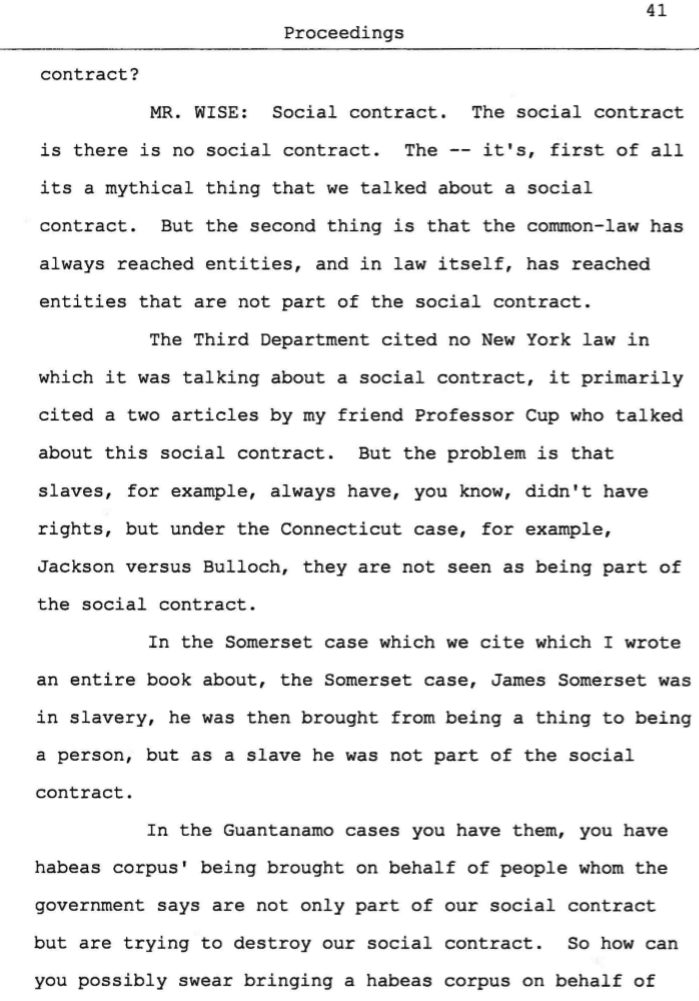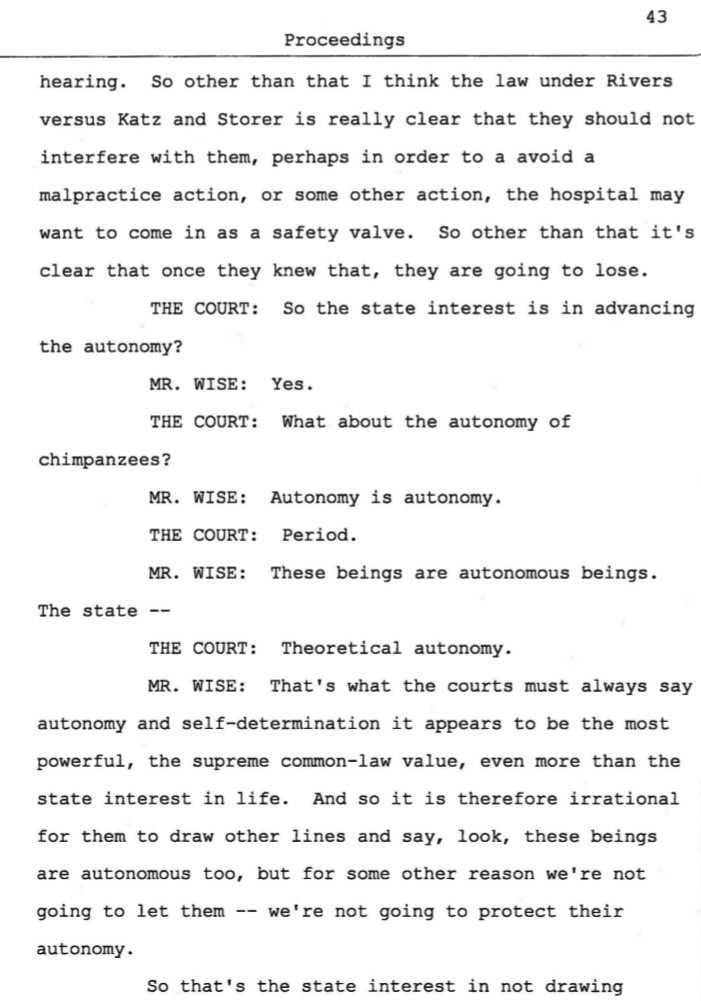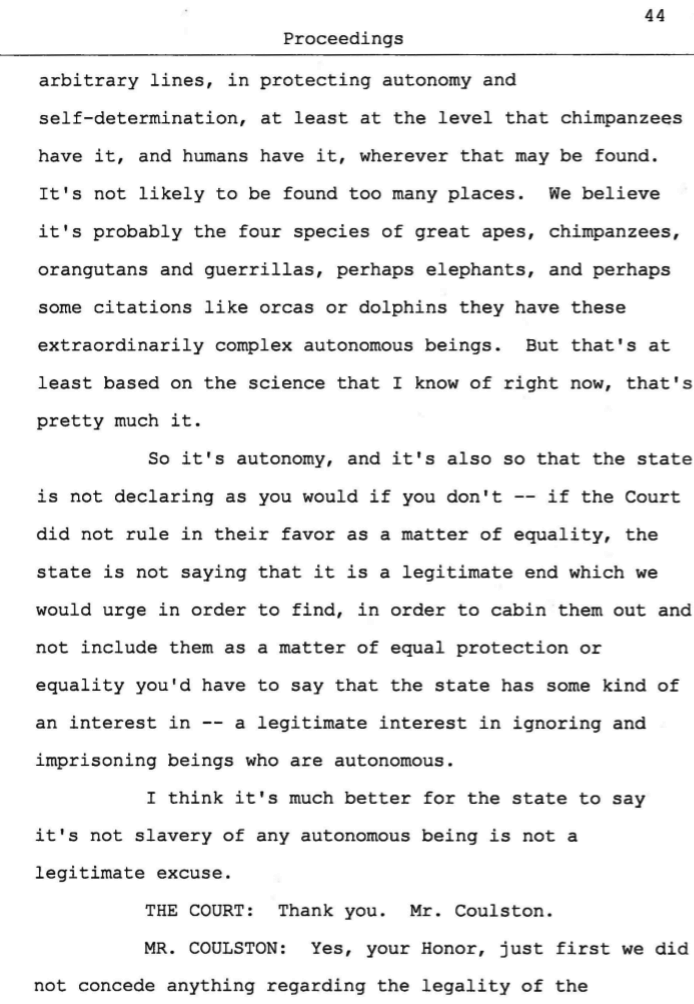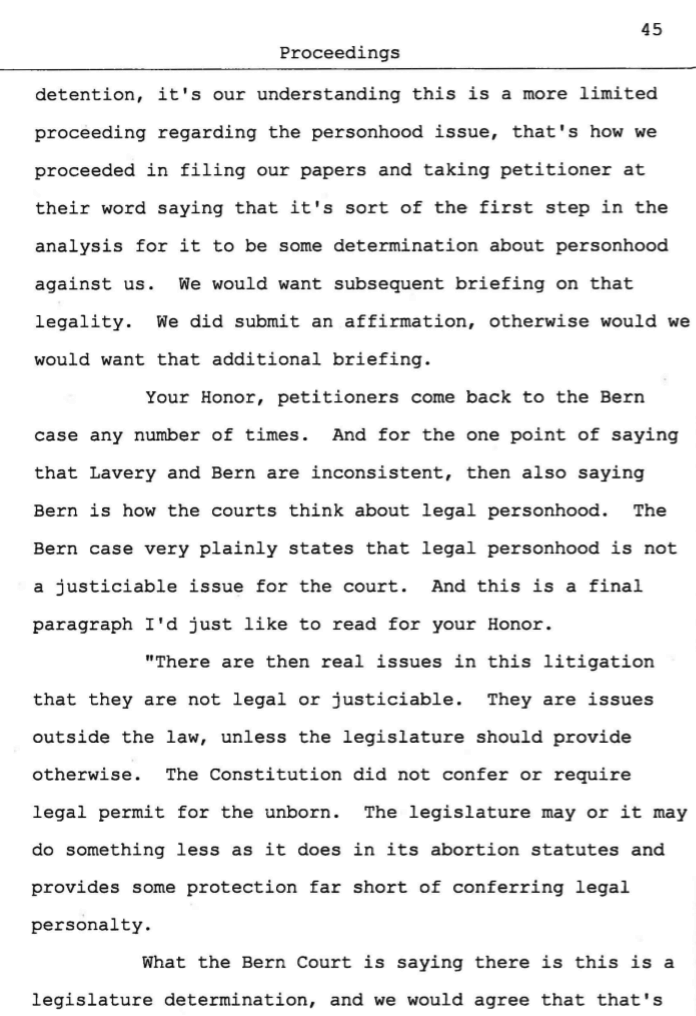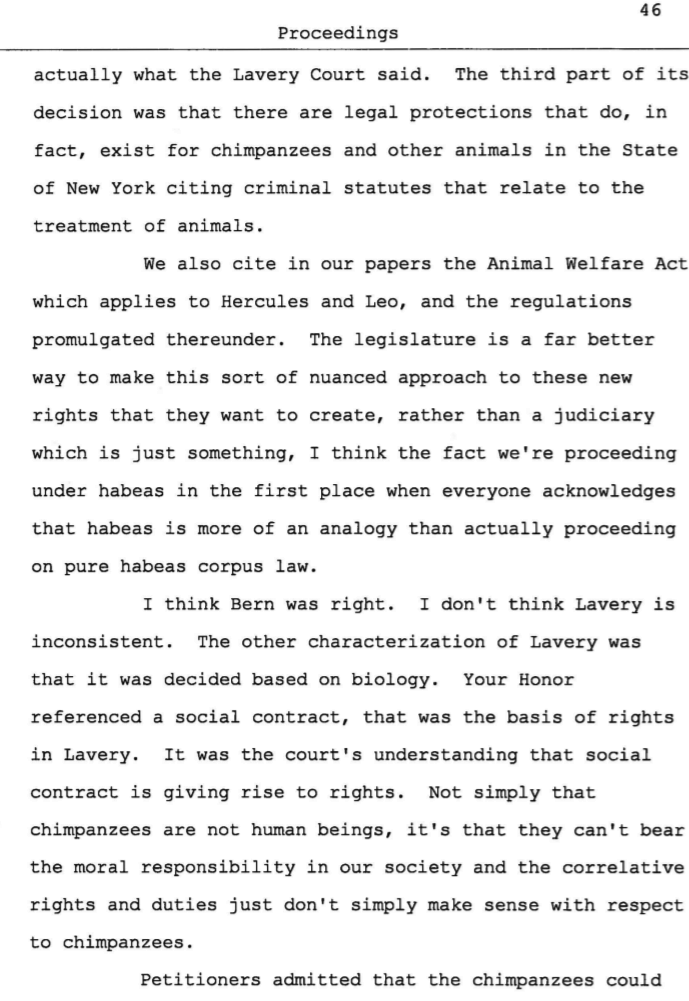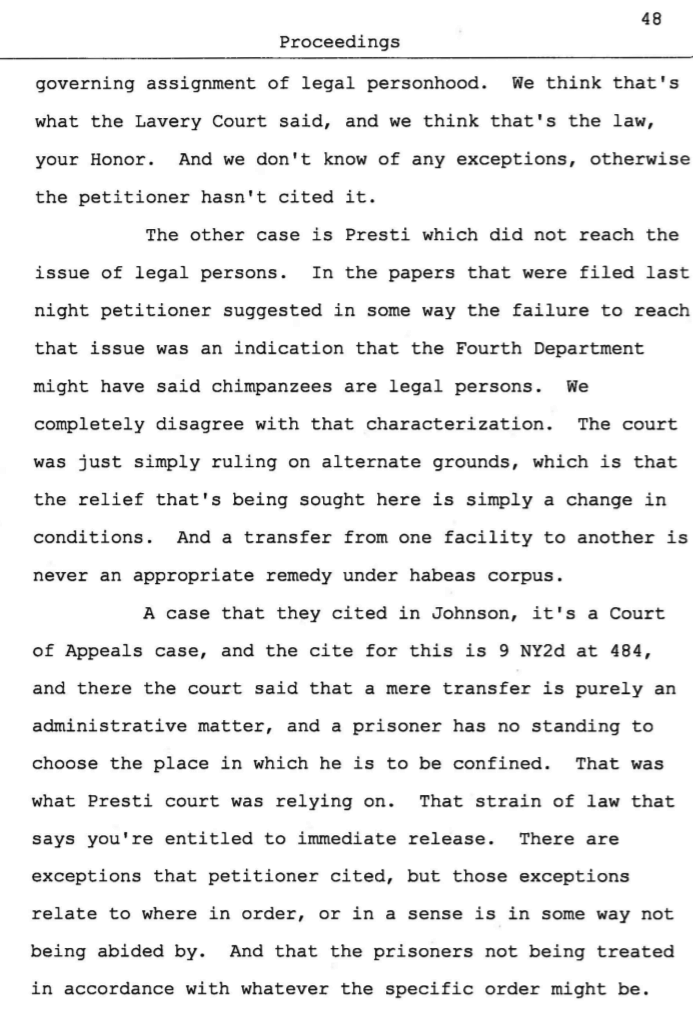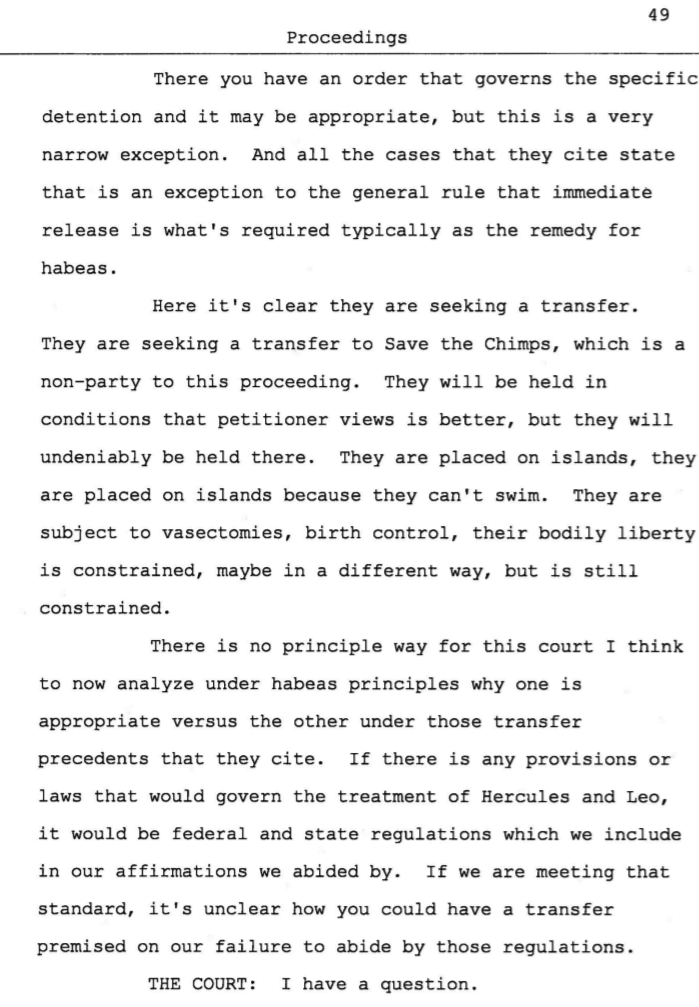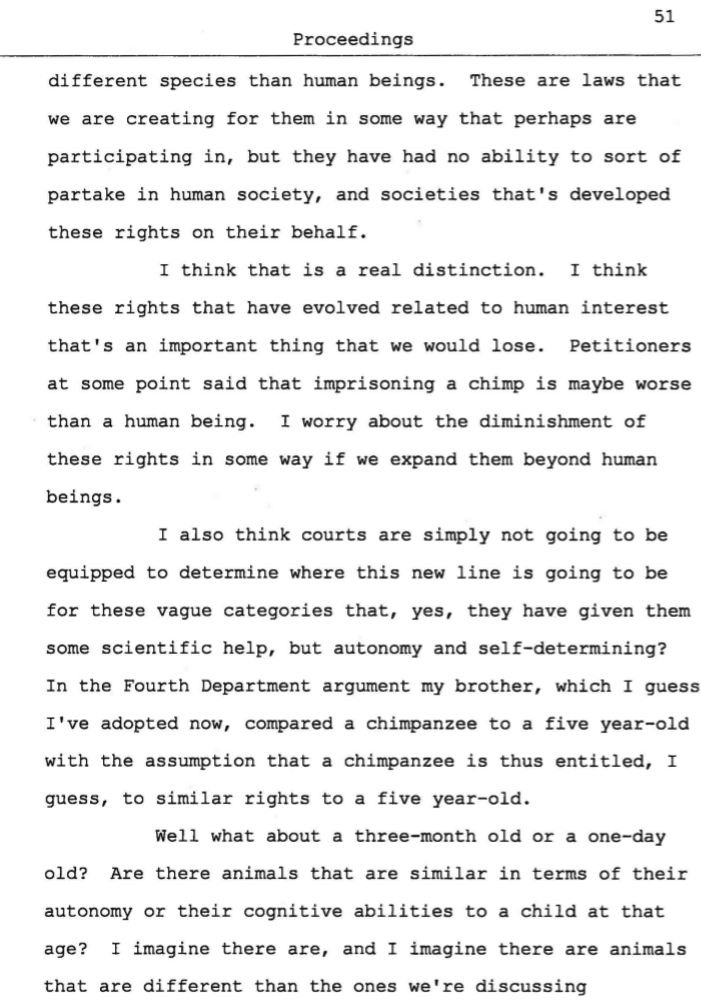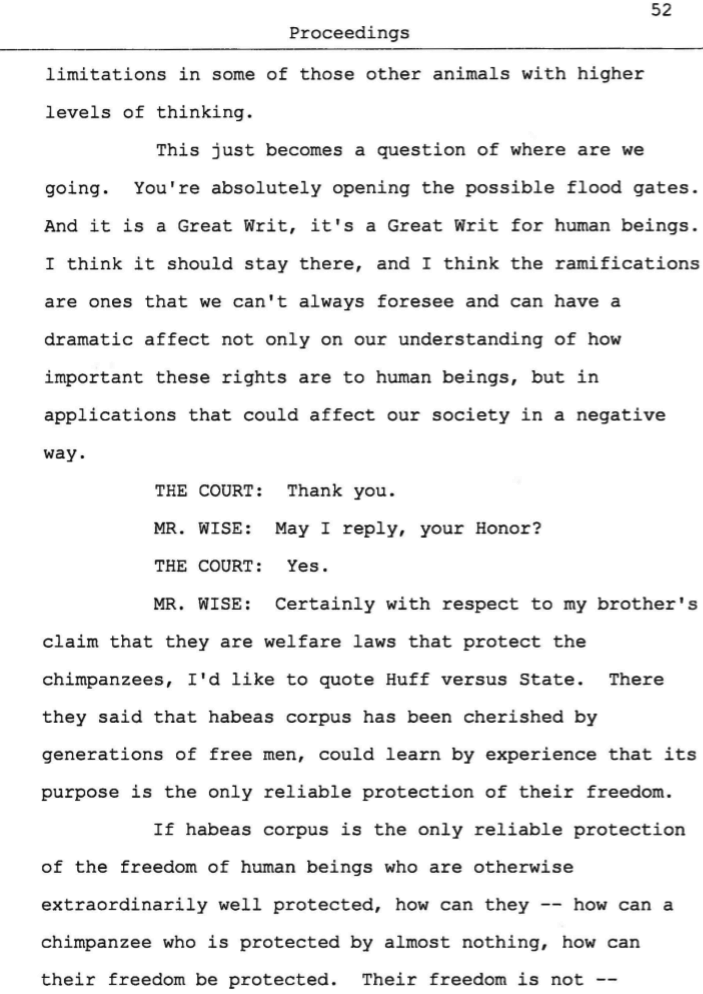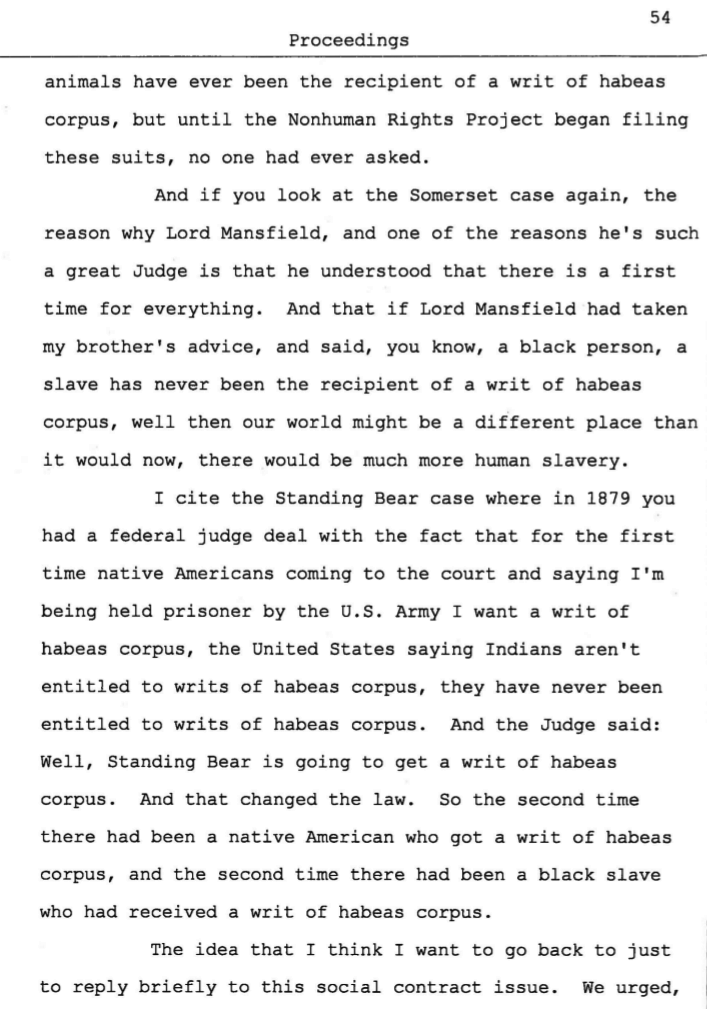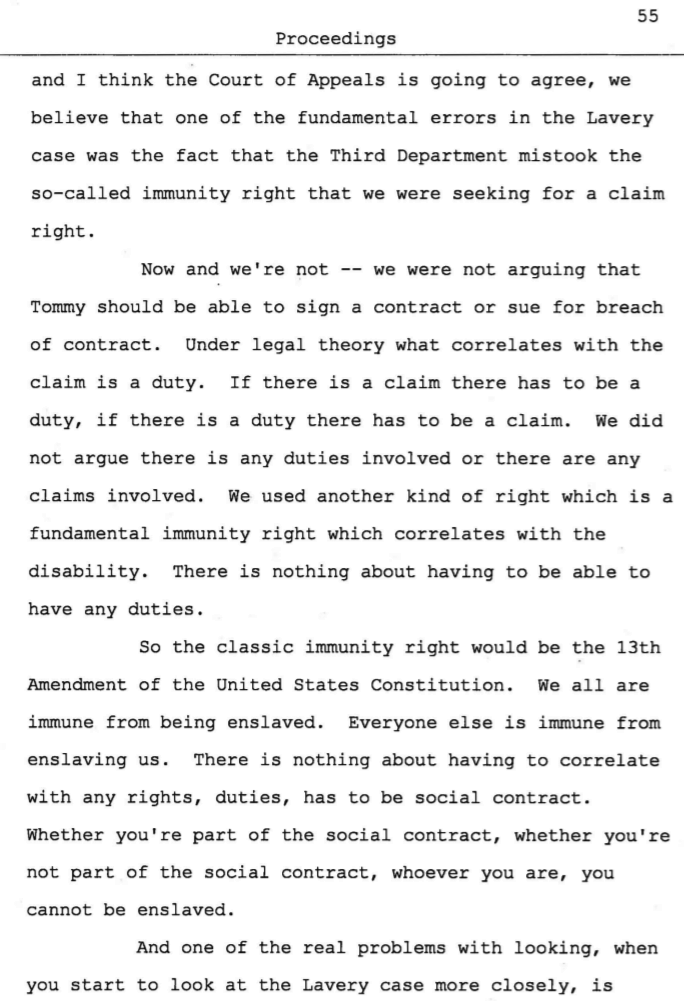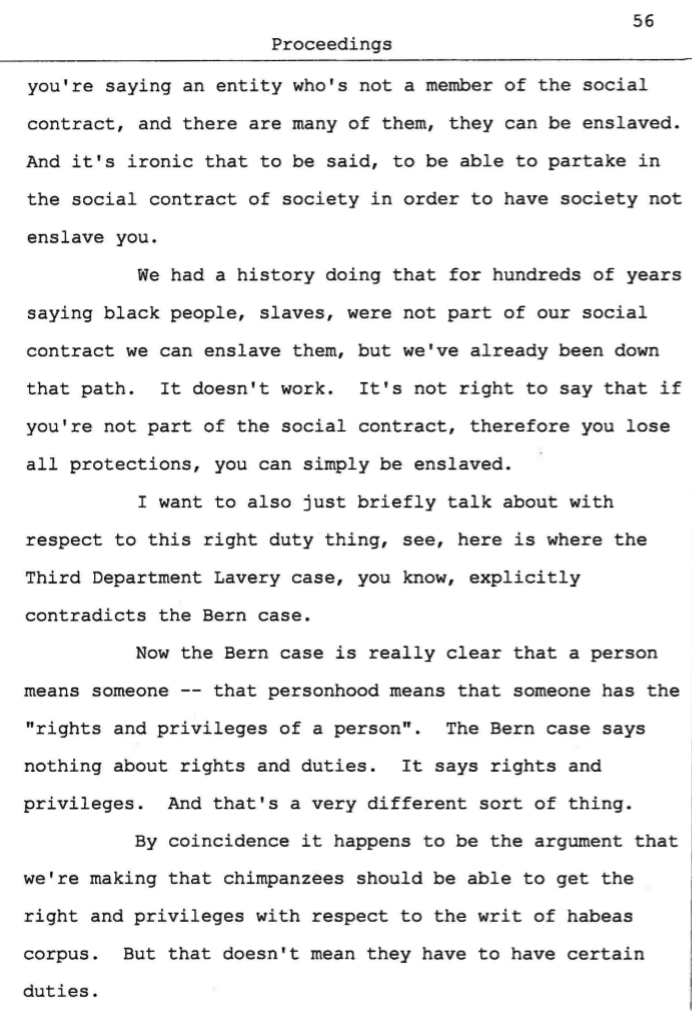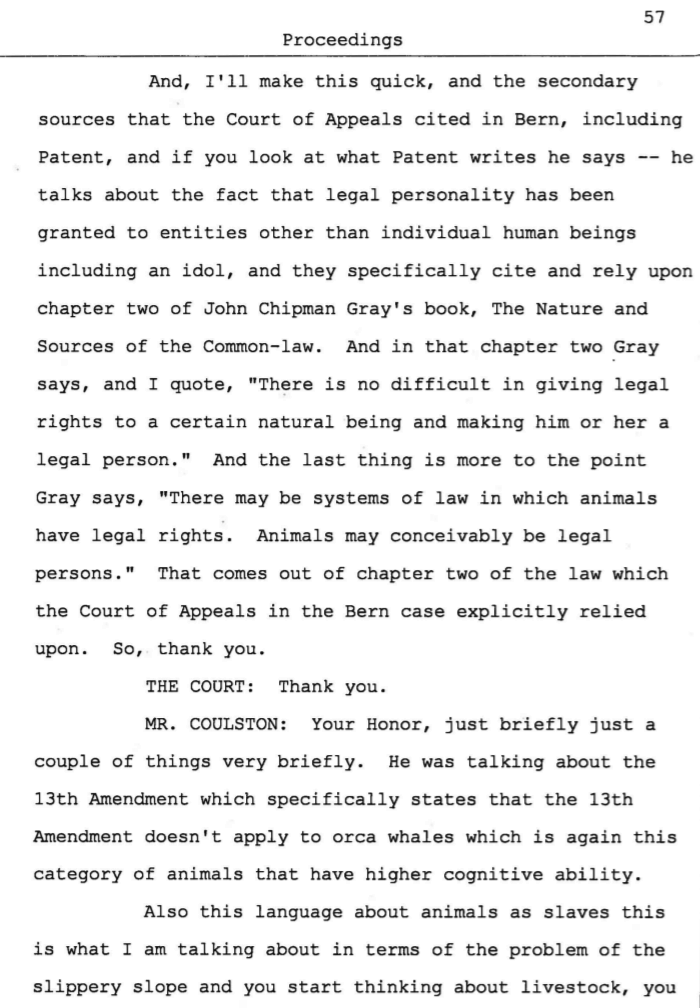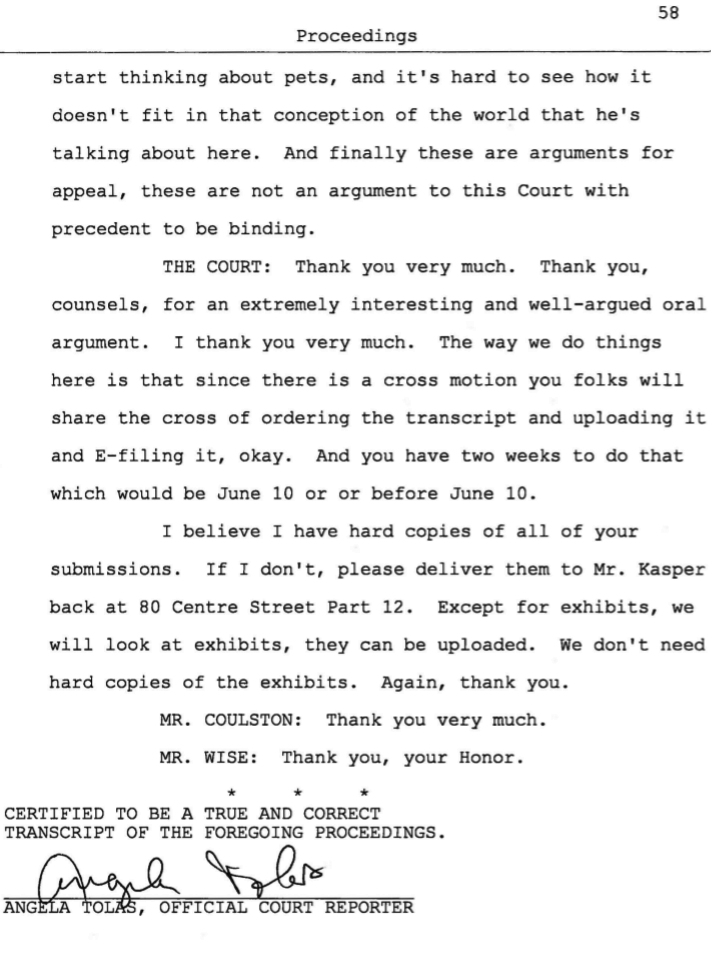Transcript: Hearing on Personhood for Hercules and Leo, Two Chimpanzees
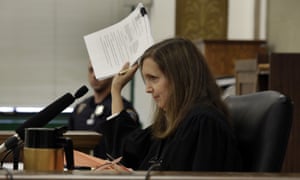
Justice Barbara Jaffe at 2015 hearing
On March 19, 2015, the Nonhuman Rights Project filed a petititon for habeas corpus in New York County Supreme Court for two chimps, Hercules and Leo, who were then being held for research at Stony Brook University. A month later, Justice Barbara Jaffe ordered the state to appear in court to defend its right to hold the chimpanzees in a state university. The resulting hearing would be the first time in history a court had granted a hearing to determine the lawfulness of a nonhuman animal’s detainment. On June 27, Justice Jaffe engaged Steven M. Wise, representing the Nonhuman Rights Project, and New York Assistant Attorney General Christopher Coulston in a debate on several issues presented in the case. The first half of the hearing concerned procedural issues and the question of whether the Nonhuman Rights Project had standing to represent the chimps. Then the debate turned to the substantive issue of the case, whether Hercules and Leo were "persons" within the meaning of New York's habeas corpus law. The following is a transcript of that debate.
On July 30, 2015, Justice Jaffe rendered her decision in the case. She held that she was bound to follow the previous determination of the New York State Supreme Court, Appellate Division, Third Judicial Department in the case of the chimp, Tommy. The Third Judicial Department had ruled that Tommy was not a "person" under New York law and therefore denied the Nonhuman Rights Project's petition. Nonetheless, Justice Jaffe expressed clear sympathy for the position argued by Wise and the Nonhuman Rights Project: “Efforts to extend legal rights to chimpanzees are … understandable; some day they may even succeed. Courts, however, are slow to embrace change, and occasionally seem reluctant to engage in broader, more inclusive interpretations of the law … As Justice Kennedy observed in Lawrence v Texas, ‘times can blind us to certain truths and later generations can see that laws once thought necessary and proper in fact serve only to oppress.’ For now, however, given the precedent to which I am bound, it is hereby ordered that the petition for a writ of habeas corpus is denied.”










